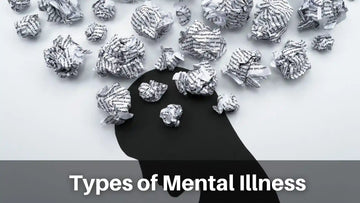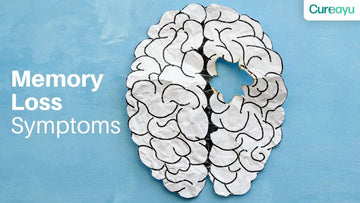Headaches are one of the most common health complaints worldwide, affecting millions of people daily. They vary in intensity, frequency, and cause, making it important to understand the different types of headaches for proper management. Some headaches are a minor inconvenience, while others can be severe and debilitating, affecting daily life. Knowing the type and root cause of a headache can help individuals seek appropriate treatments, avoid triggers, and manage the condition more effectively.
In this blog, we will explore the various types of headaches, reasons for their occurrence, and how each type differs in terms of symptoms and severity. Whether you're experiencing a mild tension headache or a throbbing migraine, understanding the underlying factors is the first step toward relief. Let's dive into the reasons behind headaches and their various types.
Also Read: How to Prevent Migraines: Comprehensive Ways to Avoid Migraines
Headache Reasons
Headaches can be triggered by a wide range of factors. The most common causes include stress, dehydration, muscle tension, or lack of sleep. However, headaches can also be linked to more serious underlying health conditions like sinus infections, high blood pressure, or neurological disorders. External factors such as loud noises, bright lights, and strong smells can also trigger headaches.
Hormonal changes, especially in women, are another common reason for headaches, as they can fluctuate due to menstruation, pregnancy, or menopause. Additionally, some people are genetically predisposed to headaches, particularly migraines. Other contributing factors include poor posture, poor diet, eye strain from prolonged screen time, and even changes in weather or altitude.
Types of Headaches and Their Causes
1. Tension Headache
A tension headache is the most common type of headache and is often described as a dull, constant pressure or tightness around the forehead or back of the neck. It is usually mild to moderate in intensity and may last for a few hours to several days.
Causes: Tension headaches are primarily caused by stress, poor posture, or muscle tension in the neck and shoulders. Other triggers include anxiety, depression, dehydration, and lack of sleep.
2. Migraine Headache
Migraines are more intense and can be debilitating. They are often accompanied by nausea, vomiting, and sensitivity to light and sound. Migraines can last for hours or even days and typically occur on one side of the head.
Causes: Migraines are thought to be caused by genetic factors and imbalances in brain chemicals, including serotonin. Common triggers include hormonal changes, stress, certain foods (like caffeine, cheese, and processed meats), weather changes, and sensory stimuli such as bright lights and strong smells.
3. Cluster Headache
Cluster headaches are rare but extremely painful, characterized by intense, burning pain around one eye or one side of the face. These headaches occur in "clusters" or cycles, often at the same time of day for weeks or months, followed by a period of remission.
Causes: While the exact cause of cluster headaches is unknown, they are thought to be related to abnormalities in the hypothalamus. Alcohol, smoking, strong odors, and changes in sleep patterns can trigger cluster headaches.
Also Read: What Is Brain Hemorrhage: Understanding Symptoms, Causes, Treatment, and Prevention
4. Sinus Headache
Sinus headaches occur when the sinus cavities in the face become inflamed, often due to a sinus infection. The pain is typically felt around the forehead, cheeks, and eyes and is often accompanied by nasal congestion, fever, or facial swelling.
Causes: Sinus headaches are usually caused by infections or allergies that lead to inflammation and blockage of the sinus passages. Weather changes, respiratory infections, and seasonal allergies can also contribute to sinus headaches.
5. Rebound Headache
Rebound headaches, also known as medication-overuse headaches, occur when someone frequently used pain medications to treat headaches, leading to a cycle of recurring pain. Overuse of over-the-counter painkillers like ibuprofen or aspirin can lead to this type of headache.
Causes: The main cause of rebound headaches is the excessive or prolonged use of pain-relief medications. These headaches may worsen when the medication is stopped, creating a dependency on the drugs for relief.
6. Hormonal Headache
Hormonal headaches, often associated with menstruation, pregnancy, or menopause, are caused by fluctuations in estrogen levels. Women may experience these headaches before or during their menstrual cycle, during pregnancy, or while taking birth control pills.
Causes: The key trigger for hormonal headaches is the change in hormone levels, particularly estrogen. Other factors like stress, poor sleep, and changes in diet can also influence hormonal headaches.
Also Read: Understanding Cervical Symptoms: Causes, Treatment, and Relief
Conclusion
Headaches are a universal health concern, but their types and causes vary significantly from person to person. From the mild discomfort of tension headaches to the intense pain of migraines and cluster headaches, each type has unique triggers and symptoms. Understanding these differences is essential for effective headache management and treatment.
Consulting a healthcare professional is crucial if headaches become frequent, persistent, or severely impact your quality of life. Proper diagnosis and treatment can prevent complications and help individuals regain control of their health. Lifestyle changes, such as stress management, proper hydration, and a balanced diet, along with medical intervention when necessary, can go a long way in reducing the frequency and severity of headaches.











